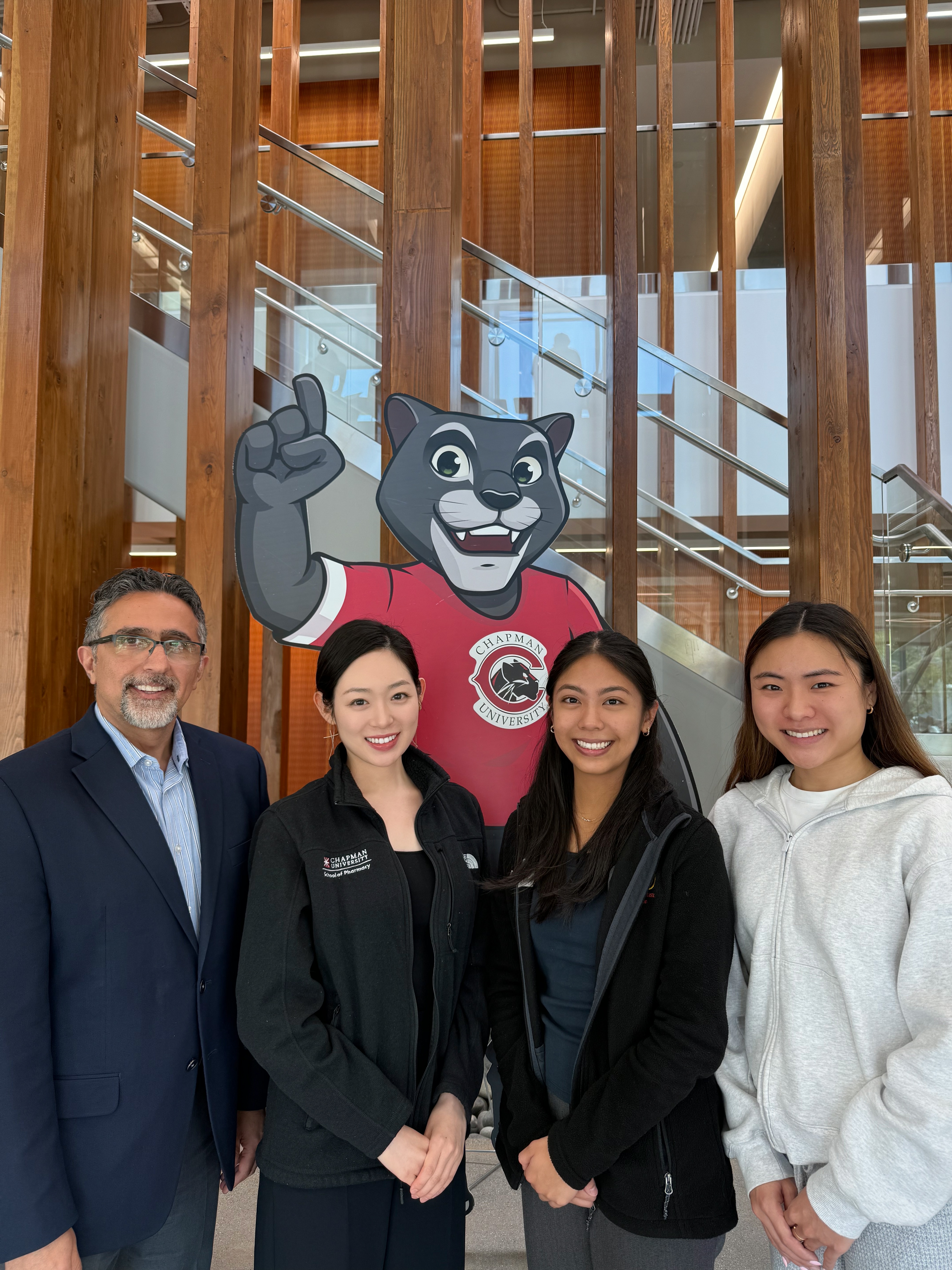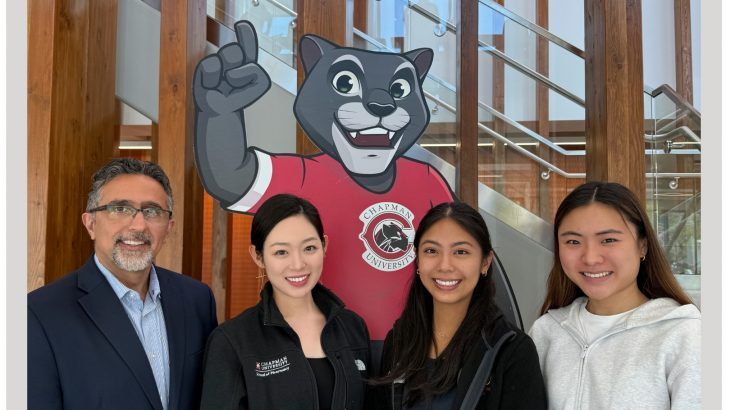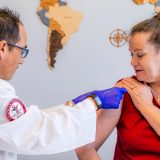Chapman Students Prepare to Lead the Next Era of Patient Safety
March 27, 2025

Three CUSP PharmD candidates attended the 2025 Pacific Coast Patient Safety Conference, where they heard from national leaders and advocates in shaping the future of safety in healthcare delivery and policy to combat preventable harm. Jasmine Cho ’25, Bonnie Chen ’26, and Camille Olegario ’26 , synthesized their takeaways in a presentation to faculty and peers regarding patient safety topics, one of the most pressing challenges in healthcare that hinders future development at a national level.
The students prefaced their presentation with three facts that impacted them most at the conference:
- Established healthcare practices in the United States is only 80 years old, stemming from innovation from World War II,
- Medical errors are the third leading cause of preventable deaths in the United States, and
- An estimated 800,000 patients die annually in the United States due to misdiagnosis.
Acknowledging that “to err is human,” students presented the balance of preventing harm today and designing better systems that anticipate problems before they occur.
One of their key takeaways was the rising importance of pharmacogenomics (PGx), which enables the selection of the right drug and dose for each patient instead of the common “blockbuster” one-size-fits-all approach to prescribing. Citing findings from New England Journal of Medicine special article, “The Safety of Inpatient Health Care,” students noted that adverse drug events accounted for 39% of all inpatient harm. As medication experts, this is one of the largest roles pharmacists can directly impact and lead change for.
Another insight that resonated with students was by Walgreens pharmacists on how the future of patient safety depends on both advancing technology and better cultural reporting systems. The emergence of “Just Culture” patterns in healthcare focuses on root causes of errors to prevent future recurrences of the issues, while also creating a fair and balanced approach to accountability that is neither punitive nor blame-free.
Their presentation also touched on the significance of remaining adaptable in practicing patient safety amidst constant healthcare policy shifts, including insurance protocol and drug pricing. They also reported on disparities in diagnostic accuracy across racial and ethnic groups based on issues of understanding social determinants of health, such as differing stroke symptom recognition in emergency room settings.
In closing, Cho, Chen, and Olegario asked their peers, “What would you do if the patient were your loved one?” It was a reminder that pharmacists are not only clinical experts, but also advocates for compassionate care and the required systematic change.
Chapman University’s commitment to healthcare transformation, leadership, and advocating for the human side of medicine extends beyond faculty research and clinical practice. CUSP encourages students to engage in patient safety dialogue early in their careers and lead the next generation of pharmacists to essential policy changes.


